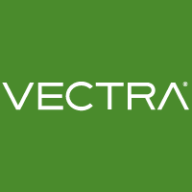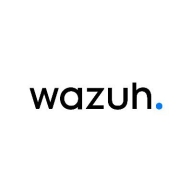

Vectra AI and Wazuh are contenders in the cybersecurity space, focusing on threat detection and response. Vectra AI appears to have an edge with its advanced AI-driven threat detection, while Wazuh provides a cost-effective alternative with comprehensive integration capabilities.
Features: Vectra AI offers network threat detection using AI and machine learning, providing comprehensive visibility into attack lifecycles. It correlates multiple alerts into singular significant incidents, enhancing threat identification. Meanwhile, Wazuh includes intrusion detection, log data analysis, and compliance monitoring, with seamless integration for both cloud and on-premise environments.
Room for Improvement: Vectra AI could improve integration capabilities for incident management and real-time responses, and expand on host-level visibility. Wazuh needs to better its scalability, especially for large enterprises, and enhance AI and ML capabilities, along with a more intuitive user interface.
Ease of Deployment and Customer Service: Vectra AI supports diverse deployments on-premises and hybrid clouds, with noted responsive technical support, albeit complex configurations may challenge those lacking technical expertise. Wazuh emphasizes ease of integration with existing infrastructure and provides cost-effective support due to its open-source nature.
Pricing and ROI: Vectra AI's pricing reflects its advanced features, suggesting high ROI through enhanced security response efficiency. Conversely, Wazuh is cost-effective being open-source, while the community-driven model may entail hidden costs related to resource investments for optimizing operational functionality.
The payback period is roughly six months.
I have seen value in security cost savings with Wazuh, as using proprietary EDR versions could save us substantial money.
The support is quite reliable depending on the service engineer assigned.
When I create tickets, the response is fast, and issues are solved promptly.
Customer support receives a rating of nine out of ten due to being very supportive and responding quite efficiently.
They responded quickly, which was crucial as I was on a time constraint.
We use the open-source version of Wazuh, which does not provide paid support.
The documentation is good and provides clear instructions, though it's targeted at those with technical backgrounds.
Vectra AI is scalable because it can work through different kinds of solutions and is compatible with all kinds of cloud solutions.
It can accommodate thousands of endpoints on one instance, and multiple instances can run for different clients.
Currently, I don't see any limitations in terms of scalability as Wazuh can still connect many endpoints.
Scalability depends on the configuration and the infrastructure resources like compute and memory we allocate.
The stability of Wazuh is strong, with no issues stemming from the solution itself.
The stability of Wazuh is largely dependent on maintenance.
The indexer frequently times out, requiring system restarts.
ExtraHop's ability to decrypt encrypted data is a feature that Vectra AI lacks.
You need to have a Linux server, and from the Linux server, you must perform AI tasks, and there is a lot to be handled in the back end.
All threats, including hacking attempts, should be comprehensively addressed.
Machine learning is needed along with understanding user behavior and behavioral patterns.
The integration modules are insufficiently developed, necessitating the creation of custom integration solutions using tools like Logstash and PubSub.
I think Wazuh should improve by introducing AI functionalities, as it would be beneficial to see AI incorporated in the threat hunting and detection functionalities.
Vectra is cheaper in terms of pricing and features compared to Darktrace.
It is very acceptable when you compare it with Darktrace, for example.
Wazuh is completely free of charge.
I would definitely recommend Wazuh, especially considering Fortinet's licensing model which is confusing and overpriced in my opinion.
Totaling around two lakh Indian rupees per month.
Our company used Vectra AI to detect the malicious threats and viruses before they could cause more damage, and we successfully stopped the threats.
Alert noise was dramatically reduced by nearly 80%, allowing SOC analysts to focus more on true threats, which made them more productive and resulted in higher operational efficiency.
There are extensive out-of-box detection capabilities.
Wazuh is a SIEM tool that is highly customizable and versatile.
The system allows us to monitor endpoints effectively and collect security data that can be utilized across other platforms such as SOAR.
With this open source tool, organizations can establish their own customized setup.
| Product | Market Share (%) |
|---|---|
| Wazuh | 8.8% |
| Vectra AI | 3.1% |
| Other | 88.1% |
| Company Size | Count |
|---|---|
| Small Business | 9 |
| Midsize Enterprise | 10 |
| Large Enterprise | 29 |
| Company Size | Count |
|---|---|
| Small Business | 27 |
| Midsize Enterprise | 15 |
| Large Enterprise | 8 |
Vectra AI enhances security operations by pinpointing attack locations, correlating alerts, and providing in-depth visibility across attack lifecycles, ultimately prioritizing threats and improving incident responses.
Vectra AI integrates AI and machine learning to detect anomalies early and supports proactive threat response. Its features like risk scoring, alert correlation, and streamlined SOC efficiency are supplemented by integration with tools like Office 365. Users highlight integration, reporting, and customization challenges, alongside limitations in syslog data and false positive management. They seek enhancements in visualization, UI, TCP replay, endpoint visibility, and tool orchestration, with requests for improved documentation, licensing, and cloud processing innovation.
What are the key features of Vectra AI?In industries like finance, healthcare, and critical infrastructure, Vectra AI is crucial for threat detection and network monitoring. Entities use it for identifying anomalous behaviors and enhancing cybersecurity by responding to network activities and analyzing traffic for potential breaches. It operates on-premises and in hybrid cloud settings, enabling threat detection without endpoint agents and supporting compliance and policy enforcement.
Wazuh offers an open-source platform designed for seamless integration into diverse environments, making it ideal for enhancing security infrastructure. Its features include log monitoring, compliance support, and real-time threat detection, providing effective cybersecurity management.
Wazuh stands out for its ability to integrate easily with Kubernetes, cloud-native infrastructures, and various SIEM platforms like ELK. It features robust MITRE ATT&CK correlation, comprehensive log monitoring capabilities, and detailed reporting dashboards. Users benefit from its file integrity monitoring and endpoint detection and response (EDR) capabilities, which streamline compliance and vulnerability assessments. While appreciated for its customization and easy deployment, room for improvement exists in scalability, particularly in the free version, and in areas such as threat intelligence integration, cloud integration, and container security. The platform is acknowledged for its strong documentation and technical support.
What are the key features of Wazuh?In industries like finance, healthcare, and technology, Wazuh is utilized for its capabilities in log aggregation, threat detection, and vulnerability management. Companies often implement its features to ensure compliance with stringent regulations and to enhance security practices across cloud environments. By leveraging its integration capabilities, organizations can achieve unified security management, ensuring comprehensive protection of their digital assets.
We monitor all Extended Detection and Response (XDR) reviews to prevent fraudulent reviews and keep review quality high. We do not post reviews by company employees or direct competitors. We validate each review for authenticity via cross-reference with LinkedIn, and personal follow-up with the reviewer when necessary.